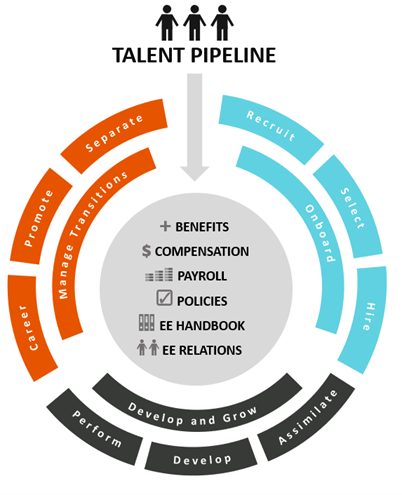10/23/2020
BY: MIKE BEELS
 We have talked for many years about the importance of “engaged” employees – those who are highly involved in, enthusiastic about and committed to their workplace. According to Gallup, team members with higher levels of engagement produce substantially better outcomes, treat customers better, attract new clients and are more likely to remain with their organization. These factors have become especially important this past year as the COVID-19 pandemic heavily impacted businesses and employees alike, making aspects such as communication, culture and engagement even more critical.
We have talked for many years about the importance of “engaged” employees – those who are highly involved in, enthusiastic about and committed to their workplace. According to Gallup, team members with higher levels of engagement produce substantially better outcomes, treat customers better, attract new clients and are more likely to remain with their organization. These factors have become especially important this past year as the COVID-19 pandemic heavily impacted businesses and employees alike, making aspects such as communication, culture and engagement even more critical.
As of May 2020, the percentage of engaged employees in the U.S. was at 38% – the highest it’s been in the past 20 years – but still only 38%. So, what can organizations do to improve those numbers?
Focusing on the entire employee experience lifecycle not only drives engagement but also increases retention of employees. The employee experience covers everything from recruitment to separation. As depicted in the model below, this includes Onboarding the employee, Developing the employee and Managing employee transitions.

The employee experience begins with Onboarding, which includes the recruitment, selection and hiring of an employee. This lays the groundwork for the entire employee experience. It tells a new employee what your company is about and what they can expect. Unfortunately, many companies do not have a structured onboarding process that positions the worker for long-term success. Instead, most companies only provide a brief orientation.
Next, the Develop and Grow phase includes the assimilation, development and performance of the employee. Formal assimilation plans assist by ensuring employees feel supported during their first months and year with a company. These plans include building a relationship with the leader, joining the team, learning the work and navigating the culture. Performance Management programs also are necessary and work effectively when they are perceived as fair and transparent.
The importance of the final stage, Managing Transitions, can be understood by reflecting on any well-managed, or poorly-managed, transition experiences you’ve had in the past. This phase involves looking at the entire career journey, including promotion and, eventually, separation. A crucial part of this phase is succession planning. Leaders must identify future positions, choose potential successors, develop readiness and periodically assess the plan to keep it current and relevant.
In all aspects of the employee experience, the organization must support the whole person by focusing on fair compensation and treatment, health care coverage, communicating well, providing opportunity, recognizing accomplishments and providing honest feedback to help the employee improve.
In today’s changing and evolving environment, companies must make a purposeful effort to attract – and keep – the very best employees. Focusing on the employee experience provides a roadmap to show what your organization can and will offer to all employees.
For further assistance with enhancing your employee experiences, join The Center for one of our new courses centered on company culture: Building Your Employee Experience and Building Culture. Register for an upcoming class here or contact our experts for help at inquiry@the-center.org.
MEET OUR EXPERT
 Mike Beels, Lean Program Manager
Mike Beels, Lean Program Manager
Mike Beels has served in the role of Lean Program Manager for the Lean Business Solutions Team at the Michigan Manufacturing Technology Center for more than 14 years. Mike’s areas of expertise include Change Leadership, Workforce Engagement, and Succession Planning, as well as the entire portfolio of Lean strategies and methodologies. Michael has been prominent in the development of the “Lean Office” Program at The Center, helping organizations identify waste and improve processes on the “carpet” side of the business.
Since 1991, the Michigan Manufacturing Technology Center has assisted Michigan’s small and medium-sized businesses to successfully compete and grow. Through personalized services designed to meet the needs of clients, we develop more effective business leaders, drive product and process innovation, promote company-wide operational excellence and foster creative strategies for business growth and greater profitability. Find us at www.the-center.org.
Categories: Leadership/Culture,
workforce